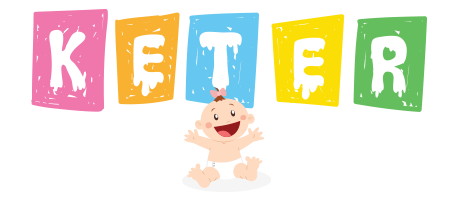
If your baby has been looking for adult food for a long time, goes to his mother's mouth, or opens his mouth and lips as if it's time to taste, it's probably time to start introducing solid foods to his diet.
At the age of 4-6 months, children are more informed and interested in their environment. As parents know, this is also the stage when decisions are made orally, when they try to put everything in their mouths. This is a sign that the introduction of solid foods may be a good time
How will I know if my baby is ready for a solid diet?
Before embarking on a solid diet, the child should check his head and pull his tongue repeatedly, which means that he should no longer push food into the tongue.
When your baby is ready for a solid diet, he will open his mouth to collect food without spitting or straining. But since this is a new experience, the first few days may not go well, even if your baby is ready. Try to make sure the food does not spill!
Children who are willing to try a solid diet will be interested in what family members eat. They should be able to move the food onto the spoon and pass it through their mouths and swallow it without choking.
How can you give your baby a solid diet?
Switching from breast milk or formula to a solid diet should be a common and enjoyable experience, but your baby should also understand that food is not a game.
Use it as a guide on how and when to breastfeed your baby during the three stages of development:
- Step 1 (usually 4-6 months): start with puree (liquefied food) and start with one tablespoon while feeding.
- Step 2 (usually 6-9 months): In this step, you can serve baby puree with a denser consistency and increase the volume to two to four tablespoons while breastfeeding.
- Step 3 (normally 10-12 months, but can happen sooner): In this step, you can replace the puree with soft, fluffy pieces of food and offer the baby more food to choose from and eat.
If you bring food that your brother had a problem with, do so in the morning. This will give you time to solve any problems and visit a doctor. For children who are more interested in a solid diet, who have repeated severe vomiting or immature cuddling, they can eat a solid diet a little later, which is fine. Check with your child's pediatrician if you are not sure.
Other tips to make the transition easier when teaching your child to eat solid foods:
- Introduce one solid meal a day and work up to three until your baby is 9 months old.
- Introduce a new meal with one ingredient every three days. This makes it easier to determine the cause of allergic reactions, such as diarrhea, vomiting or rash.
- Include foods that your family likes to create family-friendly tastes.
What foods do you offer your baby?
The American Academy of Pediatrics (AAP) recommends a wide range of options for introducing solid foods to the baby.
While parents have in the past been advised to start their child with single-grain cereals, such as rice cereals, the AAP now says there is no medical evidence that this is being introduced. A solid diet in any particular order has several benefits for your baby, in terms of nutrition and long-term taste buds.
The important thing is that your baby gets the iron-rich foods that his body needs. The point is that it comes from iron - enriched grains or a natural source like pure red meat.
What to do with dairy products?
It is okay to offer soft milk dishes for 6-12 months. The only dairy product to be avoided is whole milk, which does not provide the same range of nutrients and iron as breast milk and formula. It will take some time for your baby to get enough nutrients from table meals (usually around 12 months), and your baby should continue to get breast milk or formula during this time.
It is safe to give your child yogurt and cheese as they can be an excellent source of protein. We usually recommend whole yogurt, but yogurts and non-dairy cheeses are also fine.
Within a few months of starting a solid diet, your baby's daily diet should include a variety of foods, such as breast milk, formula, or both; meat; cereals; vegetables; the results; eggs; and fish. What foods will NOT feed the baby
Adding salt or sugar to baby food is not recommended, although cinnamon-like spices are generally fine - consult a pediatrician about food flavorings first.
With all the concerns associated with food allergies, it is important to note that there is no evidence that they delay soft and safe baby food associated with allergies such as eggs, dairy products, soy, peanuts or fish. food allergy.
In fact, there is evidence to the contrary: the early and continuous introduction of these foods can reduce the risk of allergies. You should offer these foods one by one and in a way that suits your consistency based on your child's age and development. For children with special needs, consult your child's pediatrician before making any dietary decisions. The PDO recommends that you study these sample introductory offers offered by the AAP.
